Most visitors to the Negev Highland avoid the summer ( which is a big fat mistake). They come mainly between October and April and here’s the reasons why: the weather in the Negev is gorgous. 90% of the days are dry and cool with bright sunshine; temperatures around 20 C.
Cloudy days (probably less than 20 days per year) can have a silver lining because when it rains there is a high probability of flooding and that can be spectacular. You don’t stay in your room with the heater on looking out of the window, you throw on a scarf and jacket, get in the car and go looking for sudden rivers.
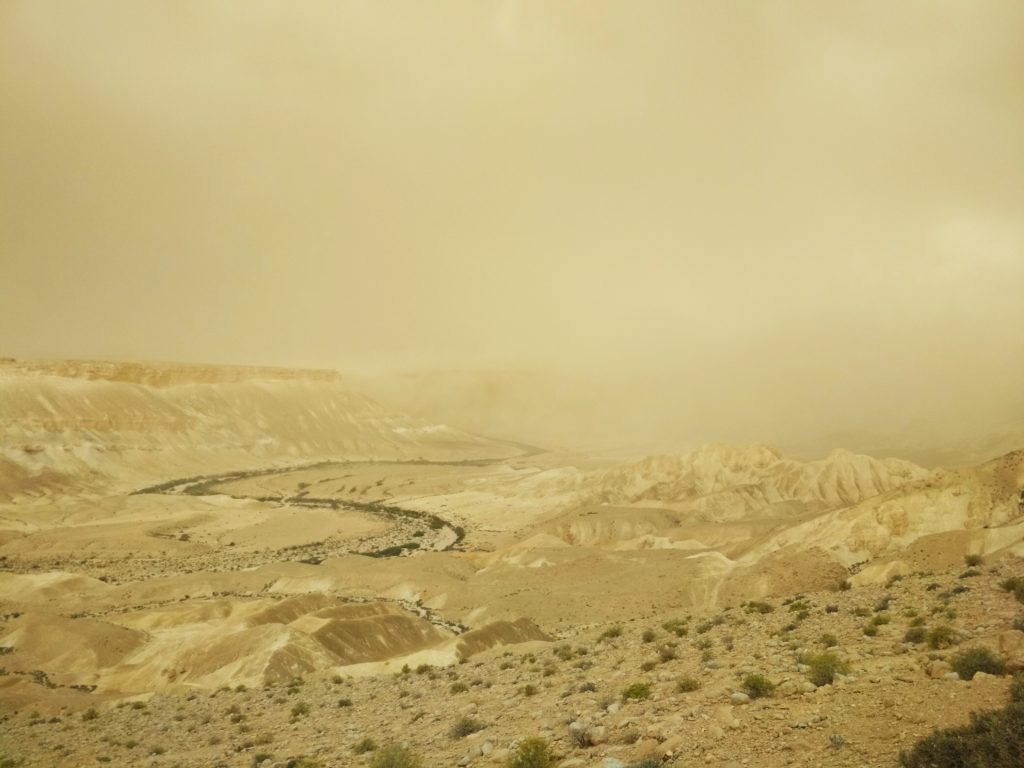
If you follow some basic security rules, rain in the Negev can be safe and fun.
Here are a few things you need to know if you are going to come during the winter.
- Start your day early because the days are short and on 21st December, sunset is at 16.30!
- Bring warm clothes. Even if the days are mostly nice and pleasant, it gets really cold at night (and by cold I mean around 0°C) and as soon as it gets dark (again, 16.30 in December!), the temperature drops really fast.
- If you are going to go on a night activity in the winter, like a night safari or star gazing, dress like you would to go skiing!
What do I do if it rains?
First of all, you should always check the weather forecast and plan your day accordingly. Hiking in wadis is not safe when it rains as floods can happen really fast and be extremely powerful. It doesn’t even need to rain in our area. We sometimes have floods when it rains in other parts of Israel even though we don’t see a drop. When it rains, you will, like most people living here and many Israelis coming specially to see that, go to the cliffs and watch the floods form, the water pouring into the wadi from above. An unforgettable show.
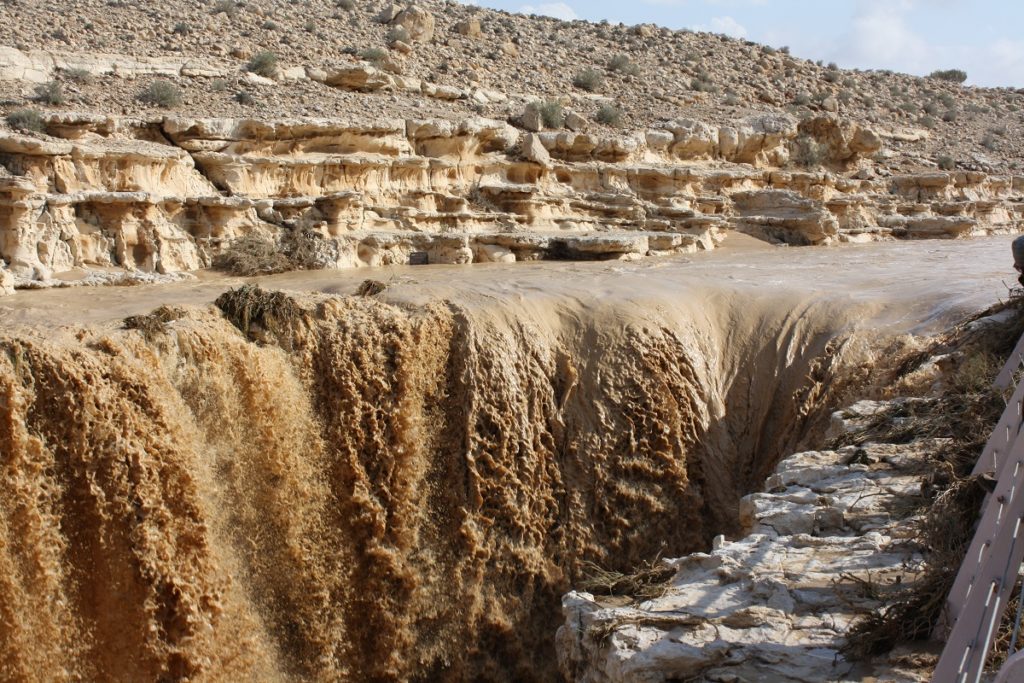
Once the weather is back to normal, you can join all the local kids in the many pools that form in and around the village. That is, if you like cold water, don’t mind a bit of mud and have a spare pair of shoes to wear while the ones that were caked in mud are drying out!
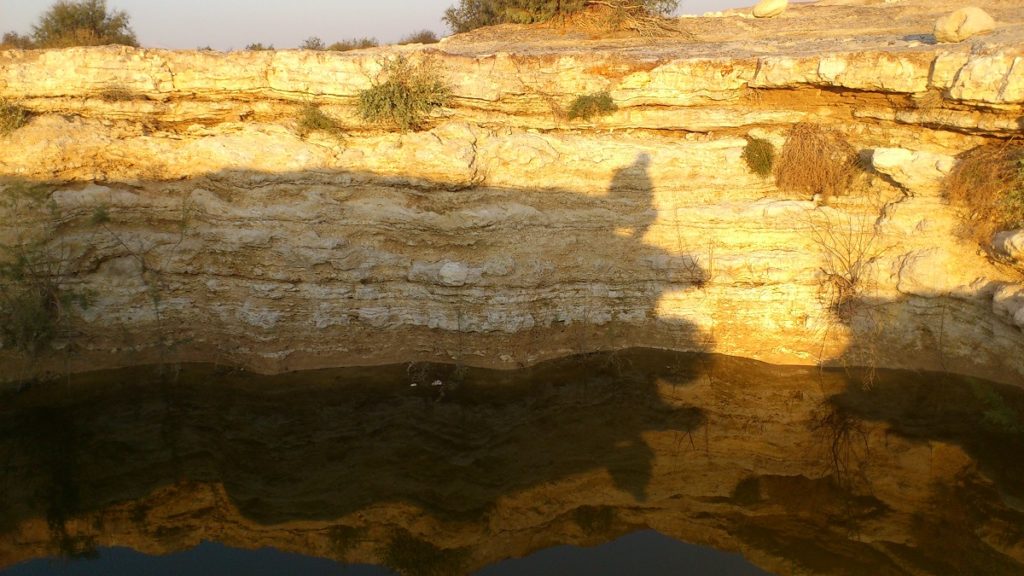
What do I do if I am driving and the road is cut by floods?
You stop. You always do. Even if you can see many cars passing and the water doesn’t reach the top of their wheels.
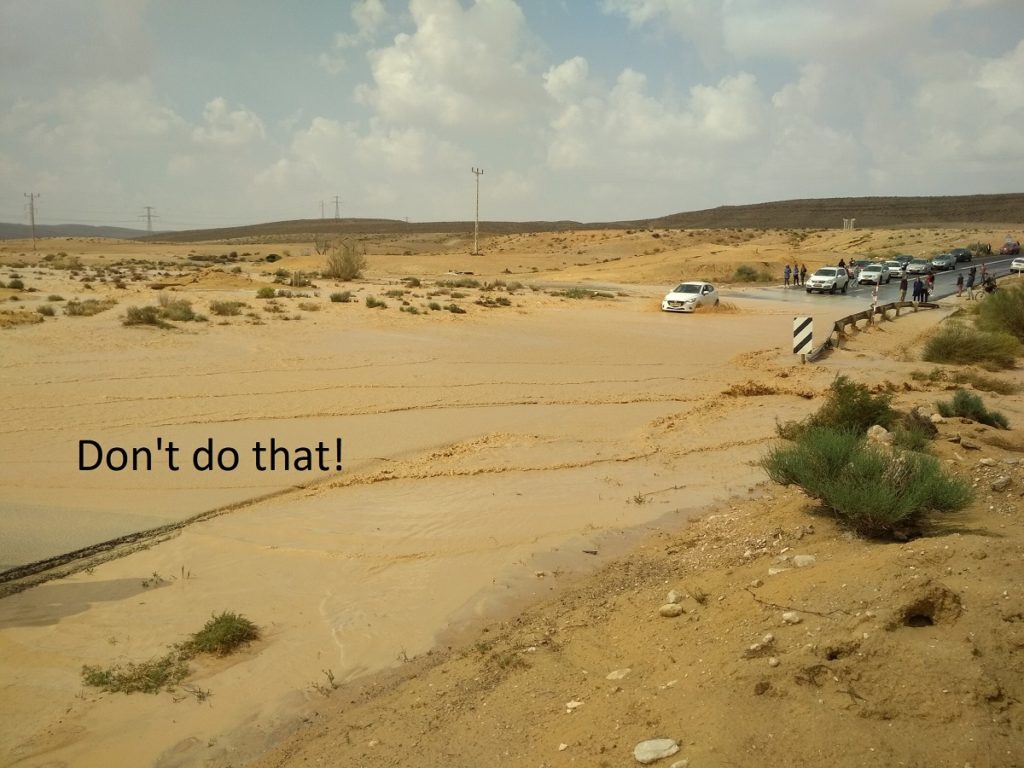
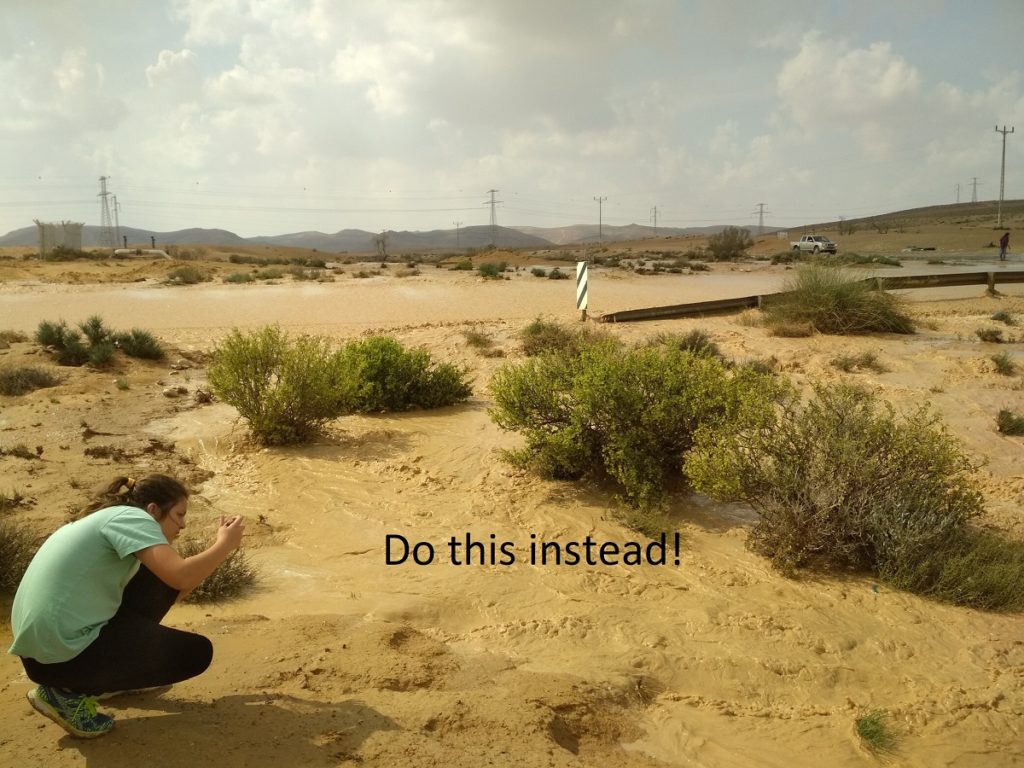
There are two main reasons for that. The first is obviously security. One never says it enough, floods arrive fast and are unpredictable. 10 cars will be able to pass without any problem but it will only take a few seconds for the water level to go up dramatically. You don’t want to be in the 11th car that will be swept away. The second reason is that stopping on the side of the road and joining the crowd that will quickly form might very well be one of your best memory of your stay in Israel.
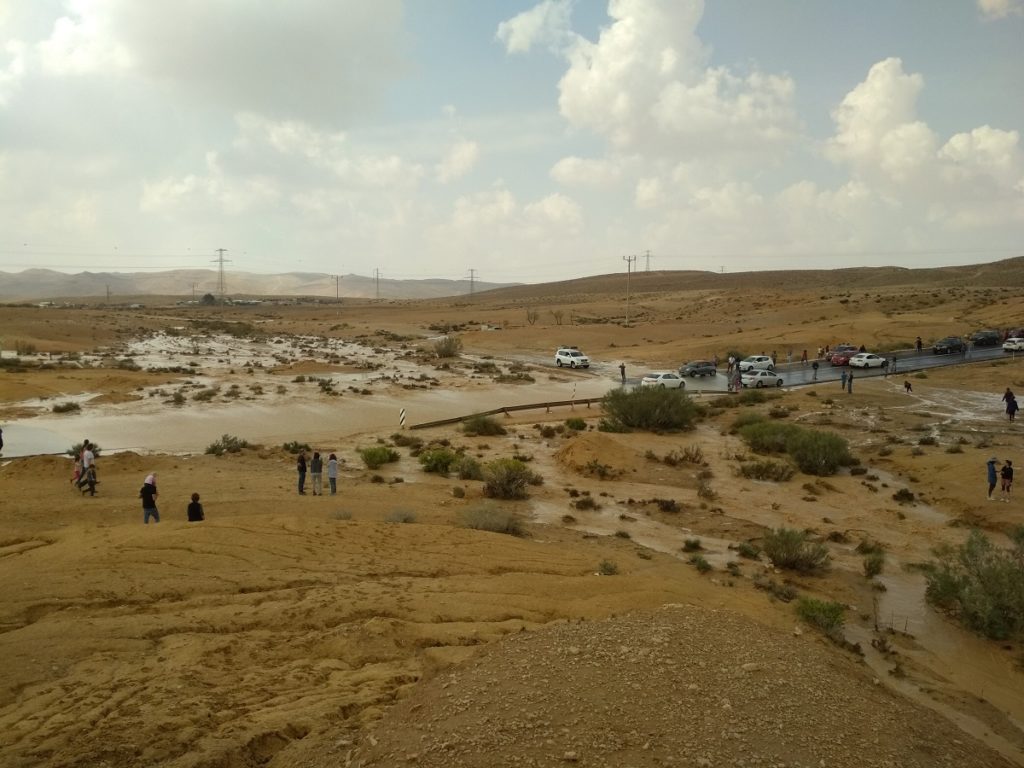
It happens to me about once a year and it is mostly a very joyful moment for strangers stopping together to look at the wonders of nature. Last year, I was with my daughter and 40 of her classmates (and their mothers) on our way to a mother/daughter bat mitzvah weekend in Eilat. We never made it to Eilat because the road was closed due to flooding. We were stopped by a flooded gully and what then happened on the side of the road was worth 20 weekends in Eilat. Little girls running everywhere to have a closer look and giggling and endless group pictures taken that they still look at very fondly.
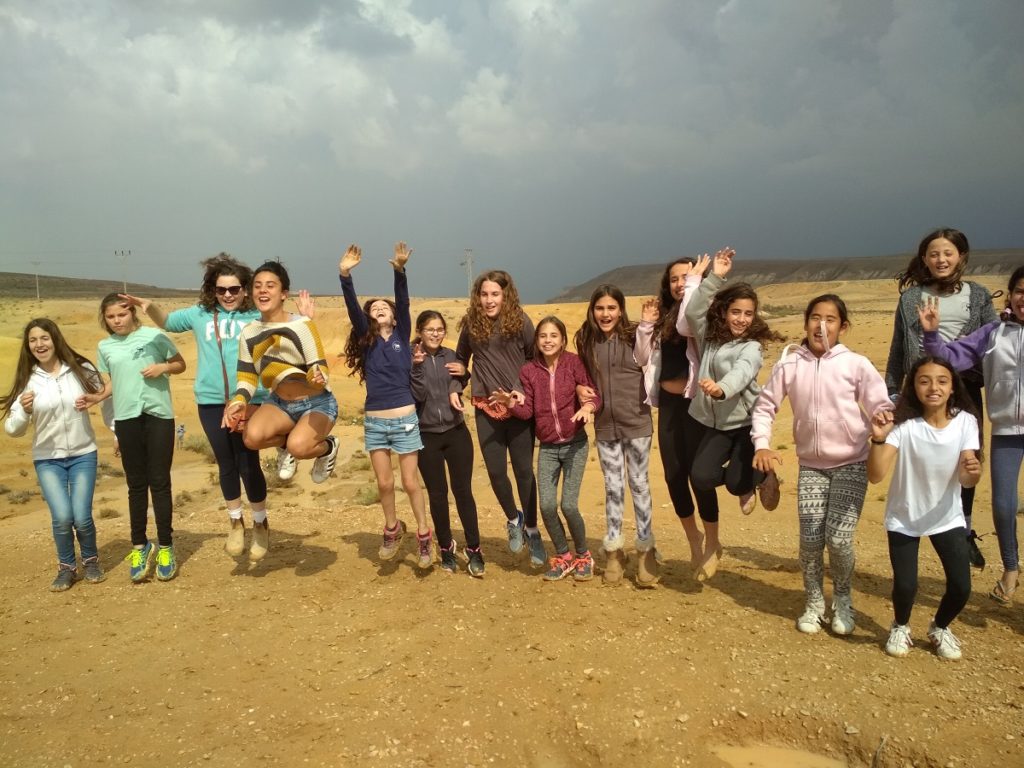
Two years ago the road was cut and we couldn’t get home. We were stuck in a café along with fifty other travellers, all in the same boat, it was pretty exciting. We spotted three Koreans tourists looking a bit lost so we joined them at their table and finally brought them back to our house for dinner. This is how I got my best stories in Korean sign language and at the end of the evening they stood up and sang a Christian hymn in Korean in perfect harmony by way of a thank you. An evening we shall never forget. All because of a flood.
When is winter in the Negev?
Winter is rather short. Real winter is from December to February. You could also have rainy wintery days in November and March.
Author: Marion Krivine
French owner of Krivine Guesthouse in Midreshet Ben Gurion, together with my British husband John. A little piece of european greenery in the heart of the Negev Highlands, Israel. I have set out on this journey in order to provide our guests with the most accurate, up-to-date and comprehensive guide of the area. View all posts by Marion Krivine

